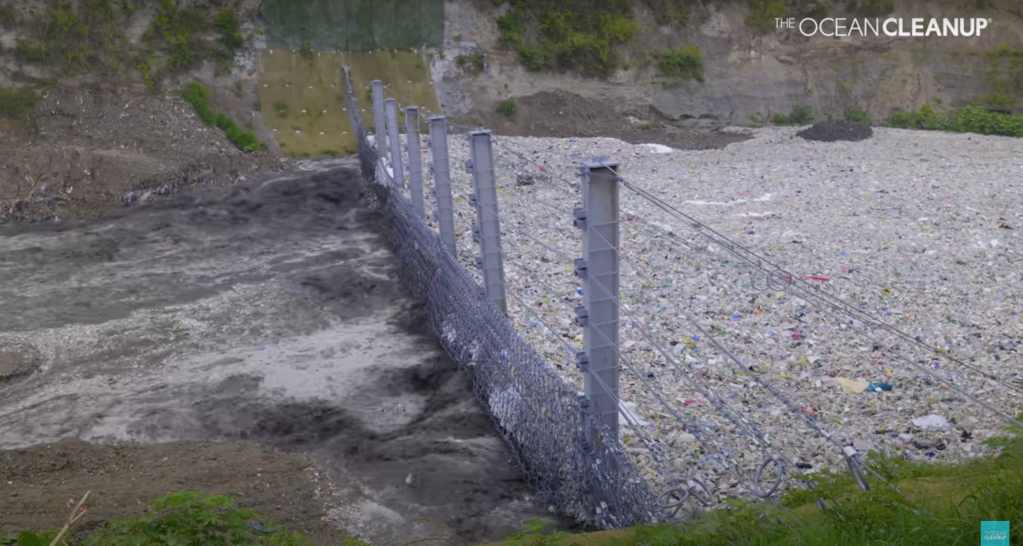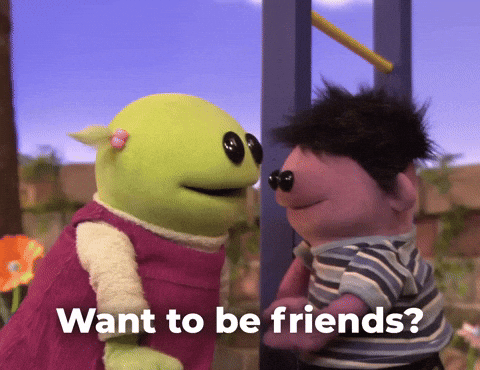The Interceptor Trashfence might sound like something out of an offbeat science fiction movie, but it’s a very real tool being used to thwart further pollution in our oceans.
The Ocean Cleaunup, a nonprofit focused on technology that prevents plastics in rivers from drifting into the ocean, posted a video to YouTube revealing a trial of one of its latest innovations—The Interceptor Trashfence.
Living up to its name, the giant chain link fence was placed in Guatemala’s Rio Motagua Basin, which The Ocean Cleanup believes to be the “heaviest polluting river in the world.” With an estimated 20,000 tons of plastic flowing through it each year, it’s a pretty safe assumption.
All of that waste goes directly into the Caribbean Sea, where blankets of garbage can be seen floating on the water’s surface. In 2017, the body of water was dubbed “the sea of plastic’‘ after disturbing photos showing those immense amounts of litter went viral.
However, with this trash fence intercepting an incoming tsunami of trash, there’s hope that the Caribbean Sea might return to its former glory.
The video shows the approaching wave, edging ever closer to the Interceptor. As the water impacts the Trashfence’s sturdy steel beams, all the plastic can be seen staying behind. It will take countless hours to clean up the literal mountains of trash left behind, but the good news is, the oceans would be clean and clear.
As the video progresses, we see that the Interceptor is not quite foolproof yet. Some bits of plastic are able to flow through certain weak spots in the fence. Still, the amount of garbage that stays behind is remarkable.
It’s hard to tell what is more uplifting— seeing the filtered water go about its merry way, or the look of delight the workers have at seeing their experiment get that much closer to success.
Many well-wishing commenters left their advice on how to prevent a potential breach in the future, such as molding the fence into a V shape pointing upstream, or doing a multifence approach. Others just came in to praise the nonprofit’s efforts.
“Man this is heartbreaking to see yet so inspirational. You guys are doing amazing work,” one person wrote.
Another added, “We need more people like you and the effort you put into this project to save our world for future generations and keep us from killing off our planet.”
Even if the Interceptor wasn’t completely victorious, the overwhelming amount of trash accumulated could be enough of a shocking visual to at least bring a sense of urgency to the situation. As The Ocean Cleanup explained in the description section of its video, 1000 rivers are responsible for roughly 80% of ocean pollution. A twofold combination of removing plastic that’s already there, as well as stopping new plastic from entering (i.e., “closing the tap”), is essential.
The Interceptor is an innovative piece of technology, but a positive impact still primarily lies in the everyday choices we make as individuals. Relying less on single-use plastic items—making sure to bring cloth bags to grocery stores, not using plastic straws, opting for glass containers over Tupperware, and so on—is one small thing that can make a big difference. If there’s any doubt, just take another look at the video for a sobering reminder.

































